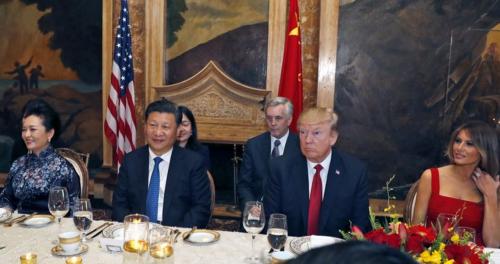While there was much fanfare over last week’s summit at Mar-A-Lago between the presidents of the US and China, the tangible results to emerge from what was the year’s most important political meeting, aside for a few photo ops, were few and far between. That may change, at least for purely optical purposes, after a report in the Financial Times that China will “offer concessions” to the US to avoid a trade war, including better market access for US financial sector investments and beef, after the nation’s leaders decided last week in Florida they needed results on trade talks within 100 days.

That said, as the FT itself concedes, “the two concessions on finance and beef are relatively easy for Beijing to make“, especially since one wonders which US firms are in a rush to enter the “bubble-bust” Chinese financial markets which as we described two weeks ago, are persistently on the edge of collapse- not to mention a banking system which has at least $6 trillion in bad debts – and only ever greater government intervention in the form of various Beijing backstops have kept afloat.
In any case, for those brave enough to rush after Chinese financial “bargains”, they will now be allowed to hold majority stakes in securities and insurance companies which at present they can not do. The country’s largest companies in these sectors, such as Citic Securities and China Life Insurance, have achieved enormous scale which as the FT notes “makes them formidable competitors for new entrants to the market.” Which once again begs the question: which private investor would want to compete with the Chinese government which is the de facto owner of all financial enterprises in China?
It is also the case that while US companies are invited to invest domestically, this would result in the creation of more Chinese jobs and perhaps boost China’s current account, without actually benefiting US-Sino trade relations.









Leave A Comment